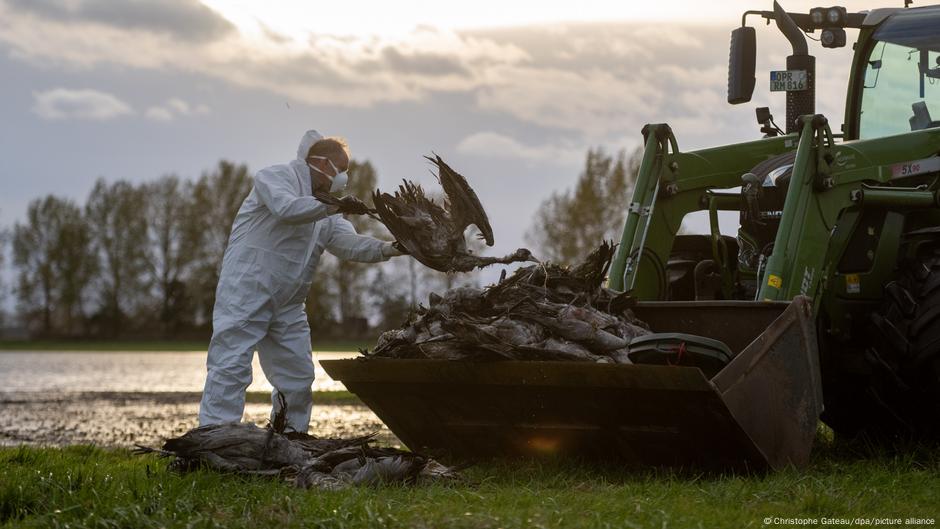More than half a million chickens, ducks, geese and turkeys have been culled in Germany since the beginning of September as bird flu spread across the country.
Another 30 outbreaks have been recorded in poultry batteries and 73 in wild birds, according to the Friedrich Loeffler Institute (FLI), the German government agency responsible for monitoring animal epidemics.
“And we are expecting more,” a spokesperson told the dpa news agency, adding that another 23 suspected cases were currently being investigated.
According to FLI, bird flu outbreaks typically emerge at the peak of the migratory season in early November, meaning the current pandemic may still be reaching its peak.
In the southwestern state of Rhineland-Palatinate, local officials said new suspected cases were reaching them on a daily basis and spoke of “unusual dynamics.”
Bird flu in Germany: where are the most affected areas?
The most affected regions are the northern and eastern states of Lower Saxony (20 cases), Thuringia (19), Brandenburg (19) and Mecklenburg-West Pomerania (14). But cases have also been confirmed in the southern state of Bavaria (eight) and the western state of North Rhine-Westphalia (five).
Cranes have reportedly been particularly badly affected, with emergency services in Northern Brandenburg, just north of Berlin, having to dispose of thousands of infected, dead animals that were roaming fields.
According to FLI, the outbreak is being caused by the highly contagious H5N-1 strain of the HPAIV influenza virus – commonly known as bird flu.
Is bird flu dangerous for humans?
In high doses, the virus is theoretically infectious to humans, but the Robert Koch Institute (RKI), Germany’s federal agency for disease control and prevention, is not aware of any such cases.
Rather, its impact on humans is likely to hit the wallet more, with Robert Schmack, president of the Bavarian Poultry Union, warning of a possible 40% increase in the price of eggs and a smaller choice of poultry products in supermarkets.
However, Hans-Peter Goldknik, president of the Central German Poultry Union, disagrees, telling the public broadcaster ZDF He “is not expecting an explosion in prices in the short term,” nor in the run-up to Christmas, not least because most of the swans in Germany are imported from Hungary and Poland.
To help prevent the spread of the virus, FLI recommends avoiding contact with dead birds and not wearing dirty shoes near enclosures that house vulnerable animals.
Meanwhile, in the Bundestag, the German parliament, a spokesman for the opposition Green Party said the current outbreak of bird flu had exposed “the vulnerability of factory farming”, where packed pens provide optimal conditions for the virus to spread.
Edited by: Louis Olofse






Leave a Reply